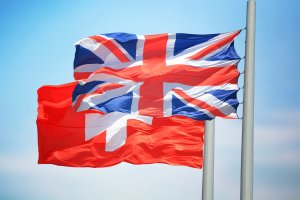- Arbitration
- Commercial disputes
- Financial services

Longer Reads
Uk Supreme Court Rules On Apparent Bias Of Arbitrators
In Halliburton Company v Chubb Bermuda Insurance Ltd [2020] UKSC 48, the U.K. Supreme Court has ruled that arbitrators are subject to a legal duty of disclosure under English law with regards to any facts or circumstances which might give rise to a real possibility of bias. The judgment also clarifies the applicable tests when considering the need for such disclosure and an arbitrator’s compliance with their broader duty of impartiality. Craig Deuchrass outlines the decision and its impact.
3 minute read
Published 12 January 2021
Key information
- Services
- Arbitration
- Commercial disputes
- Sectors
- Financial services
Background
The case arose from the 2010 explosion at the Deepwater Horizon oil rig and subsequent oil leak in the Gulf of Mexico, in which 11 offshore workers died. Thousands of civil claims were brought against oil giant BP, the oilfield contractor Halliburton and drilling contractor Transocean.
Following a US judgment apportioning blame, Halliburton reached a settlement of the civil claims, part of which it sought to claim under its Bermuda form insurance policy held with Chubb, but Chubb refused Halliburton’s claims. The policy provided for any disputes to be settled by way of ad hoc arbitration in London. Both parties selected their own arbitrator but were unable to agree on the chairman of the arbitration. A High Court application led to the selection of Chubb’s first-choice candidate, Mr Rokison QC.
Following his appointment, Mr Rokison then accepted appointment as an arbitrator in two further matters arising from the Deepwater Horizon disaster. In one of these, the insurer was Chubb and Mr Rokison had been appointed by Chubb. He did not disclose these subsequent appointments to Halliburton and, when Halliburton became aware of them, it applied to the High Court to remove him under section 24(1)(a) of the Arbitration Act 1996 (the “Act”), which allows for removal of an arbitrator where “circumstances exist that give rise to justifiable doubts” about the arbitrator’s impartiality.
The Supreme Court’s Decision
At the heart of the appeal was Halliburton’s contention that the lower courts had failed to have proper regard to the unfairness which may arise where an arbitrator accepts repeat appointments in overlapping references with only one common party; the essence of that unfairness being information and knowledge which the common party acquires unknown to the other party.
Intervenor submissions from the LCIA and ICC supported the imposition of more robust duty of disclosure on arbitrators under English law in relation to any doubts that the arbitrator might have as to his impartiality or independence. The Supreme Court dismissed Halliburton’s appeal, even though it did conclude that the arbitrator was in breach of his duty to disclose at least one of his subsequent appointments. In reaching its conclusion, the Court set out a number of principles:
- Unless otherwise agreed, arbitrators are bound by a legal duty to disclose any facts or circumstances that would or might lead the “fair-minded and informed observer” to conclude that there was a real possibility that the arbitrator was biased.
- The duty of disclosure is broad. An arbitrator should disclose information that would or might give rise to a finding of bias.
- Whether an arbitrator has breached the duty to disclose is to be assessed by reference to the facts and circumstances as at and from the date when the duty arose.
- Breach of the disclosure duty is an important, though not determinative, factor when assessing whether the arbitrator has breached the duty of impartiality.
In reaching its decision, the Supreme Court applied the objective test for determining apparent bias, namely, whether the fair-minded and informed observer having considered the facts, would conclude that there was a real possibility of bias. When assessing whether there is a real possibility of bias the Court said that the observer should make such assessment as at the date of the hearing to remove the arbitrator, and not at the date of the arbitrator’s acceptance of the subsequent appointment. The observer may also take account of the fact that, in certain subject matter fields of arbitration, there are different expectations as to the degree of independence of an arbitrator and as to the benefits to be gained by having an arbitrator who is involved in multiple related arbitrations.
Having regard to all the circumstances of the case, Lord Hodge, Deputy President of the Court, concluded that the fair-minded and informed observer as at the date of the hearing to remove the arbitrator would not infer a real possibility of unconscious bias, including because (i) the arbitrator had by then explained to Halliburton that his failure to disclose the later appointments was an innocent oversight, and Halliburton had accepted that explanation (ii) the arbitrator had received no secret financial benefit from the later appointments or any basis for inferring any unconscious ill-will on his part (iii) the later arbitrations had commenced several months after Halliburton’s arbitration and (iv) the later arbitrations were likely to be (and subsequently were) resolved by way of preliminary issue, without any overlap in evidence or legal submissions between them and Halliburton’s arbitration.
Comment
The Supreme Court’s judgment has brought welcome clarity to the nature and scope of arbitrators’ duties of impartiality and disclosure under English law. In particular, it has confirmed that arbitrators, however appointed, are under a legal duty to disclose potential conflicts of interest, which may include multiple appointments in related arbitrations
The Court’s recognition of differing customs and practices, in assessing whether multiple appointments might give rise to the appearance of bias, will be a welcome development for fields of arbitration which are conducted by a limited pool of specialists and commonly involve disputes about the same subject matter. But, by making clear that the particular practices of different fields of arbitration should be taken into account in determining these questions, the Court has left space for development of the law, potentially in different directions dependent on whether the relevant arbitration is a commercial, insurance, commodity, shipping or trade arbitration.
Longer Reads
Uk Supreme Court Rules On Apparent Bias Of Arbitrators
In Halliburton Company v Chubb Bermuda Insurance Ltd [2020] UKSC 48, the U.K. Supreme Court has ruled that arbitrators are subject to a legal duty of disclosure under English law with regards to any facts or circumstances which might give rise to a real possibility of bias. The judgment also clarifies the applicable tests when considering the need for such disclosure and an arbitrator’s compliance with their broader duty of impartiality. Craig Deuchrass outlines the decision and its impact.
Published 12 January 2021
Associated sectors / services
Authors
Background
The case arose from the 2010 explosion at the Deepwater Horizon oil rig and subsequent oil leak in the Gulf of Mexico, in which 11 offshore workers died. Thousands of civil claims were brought against oil giant BP, the oilfield contractor Halliburton and drilling contractor Transocean.
Following a US judgment apportioning blame, Halliburton reached a settlement of the civil claims, part of which it sought to claim under its Bermuda form insurance policy held with Chubb, but Chubb refused Halliburton’s claims. The policy provided for any disputes to be settled by way of ad hoc arbitration in London. Both parties selected their own arbitrator but were unable to agree on the chairman of the arbitration. A High Court application led to the selection of Chubb’s first-choice candidate, Mr Rokison QC.
Following his appointment, Mr Rokison then accepted appointment as an arbitrator in two further matters arising from the Deepwater Horizon disaster. In one of these, the insurer was Chubb and Mr Rokison had been appointed by Chubb. He did not disclose these subsequent appointments to Halliburton and, when Halliburton became aware of them, it applied to the High Court to remove him under section 24(1)(a) of the Arbitration Act 1996 (the “Act”), which allows for removal of an arbitrator where “circumstances exist that give rise to justifiable doubts” about the arbitrator’s impartiality.
The Supreme Court’s Decision
At the heart of the appeal was Halliburton’s contention that the lower courts had failed to have proper regard to the unfairness which may arise where an arbitrator accepts repeat appointments in overlapping references with only one common party; the essence of that unfairness being information and knowledge which the common party acquires unknown to the other party.
Intervenor submissions from the LCIA and ICC supported the imposition of more robust duty of disclosure on arbitrators under English law in relation to any doubts that the arbitrator might have as to his impartiality or independence. The Supreme Court dismissed Halliburton’s appeal, even though it did conclude that the arbitrator was in breach of his duty to disclose at least one of his subsequent appointments. In reaching its conclusion, the Court set out a number of principles:
- Unless otherwise agreed, arbitrators are bound by a legal duty to disclose any facts or circumstances that would or might lead the “fair-minded and informed observer” to conclude that there was a real possibility that the arbitrator was biased.
- The duty of disclosure is broad. An arbitrator should disclose information that would or might give rise to a finding of bias.
- Whether an arbitrator has breached the duty to disclose is to be assessed by reference to the facts and circumstances as at and from the date when the duty arose.
- Breach of the disclosure duty is an important, though not determinative, factor when assessing whether the arbitrator has breached the duty of impartiality.
In reaching its decision, the Supreme Court applied the objective test for determining apparent bias, namely, whether the fair-minded and informed observer having considered the facts, would conclude that there was a real possibility of bias. When assessing whether there is a real possibility of bias the Court said that the observer should make such assessment as at the date of the hearing to remove the arbitrator, and not at the date of the arbitrator’s acceptance of the subsequent appointment. The observer may also take account of the fact that, in certain subject matter fields of arbitration, there are different expectations as to the degree of independence of an arbitrator and as to the benefits to be gained by having an arbitrator who is involved in multiple related arbitrations.
Having regard to all the circumstances of the case, Lord Hodge, Deputy President of the Court, concluded that the fair-minded and informed observer as at the date of the hearing to remove the arbitrator would not infer a real possibility of unconscious bias, including because (i) the arbitrator had by then explained to Halliburton that his failure to disclose the later appointments was an innocent oversight, and Halliburton had accepted that explanation (ii) the arbitrator had received no secret financial benefit from the later appointments or any basis for inferring any unconscious ill-will on his part (iii) the later arbitrations had commenced several months after Halliburton’s arbitration and (iv) the later arbitrations were likely to be (and subsequently were) resolved by way of preliminary issue, without any overlap in evidence or legal submissions between them and Halliburton’s arbitration.
Comment
The Supreme Court’s judgment has brought welcome clarity to the nature and scope of arbitrators’ duties of impartiality and disclosure under English law. In particular, it has confirmed that arbitrators, however appointed, are under a legal duty to disclose potential conflicts of interest, which may include multiple appointments in related arbitrations
The Court’s recognition of differing customs and practices, in assessing whether multiple appointments might give rise to the appearance of bias, will be a welcome development for fields of arbitration which are conducted by a limited pool of specialists and commonly involve disputes about the same subject matter. But, by making clear that the particular practices of different fields of arbitration should be taken into account in determining these questions, the Court has left space for development of the law, potentially in different directions dependent on whether the relevant arbitration is a commercial, insurance, commodity, shipping or trade arbitration.
Associated sectors / services
- Arbitration
- Commercial disputes
- Financial services
Authors
Need some more information? Make an enquiry below.
Subscribe
Please add your details and your areas of interest below
Article contributor
Craig
DeuchrassSenior Associate
Specialising in Commercial disputes, Banking & financial disputes and Commercial arbitration
Enjoy reading our articles? why not subscribe to notifications so you’ll never miss one?
Subscribe to our articlesMessage us on WhatsApp (calling not available)
Please note that Collyer Bristow provides this service during office hours for general information and enquiries only and that no legal or other professional advice will be provided over the WhatsApp platform. Please also note that if you choose to use this platform your personal data is likely to be processed outside the UK and EEA, including in the US. Appropriate legal or other professional opinion should be taken before taking or omitting to take any action in respect of any specific problem. Collyer Bristow LLP accepts no liability for any loss or damage which may arise from reliance on information provided. All information will be deleted immediately upon completion of a conversation.
Close
























































